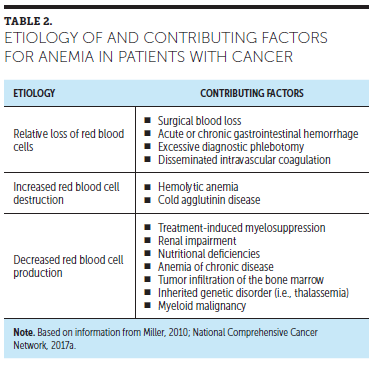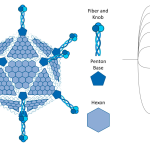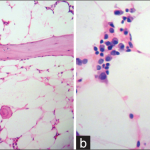Anemia from Chemotherapy Treatment: The Result of Bone Marrow Suppression
When you or a loved one is diagnosed with cancer, the thought of chemotherapy can be daunting. While it’s a crucial part of many treatment plans, its side effects can be just as overwhelming. One common and often misunderstood consequence of chemo is anemia – a condition where your body doesn’t produce enough red blood cells to carry oxygen throughout your body. In this post, we’ll delve into the connection between chemotherapy-induced anemia and bone marrow suppression.
The Link Between Chemo and Anemia
Anemia caused by chemotherapy is often a result of bone marrow suppression, which occurs when the treatment damages or destroys the bone marrow’s ability to produce blood cells. This includes red blood cells, white blood cells, and platelets. While chemo’s primary goal is to kill cancer cells, its indiscriminate nature also affects healthy cells in the process.
When chemotherapy targets rapidly dividing cancer cells, it can also harm the stem cells responsible for producing new blood cells. As a result, the bone marrow’s ability to produce red blood cells, which carry oxygen throughout your body, is compromised. This can lead to fatigue, weakness, and shortness of breath – all classic symptoms of anemia.
In our next section, we’ll explore more about the effects of chemotherapy-induced anemia on daily life and how healthcare providers manage this condition.

The Effects of Chemotherapy-Induced Anemia on Daily Life
Anemia caused by chemotherapy can significantly impact daily life, making even simple tasks feel like a struggle. Fatigue is often the most pronounced symptom, leaving patients feeling weak and lacking the energy to engage in their usual activities. This can be particularly challenging for individuals who were previously active or had a busy schedule.
Another common issue is shortness of breath, which can make everyday physical exertion, such as walking up stairs or carrying groceries, feel like climbing a mountain. This can lead to feelings of frustration and anxiety, especially if patients are unable to participate in activities they once enjoyed.
To make matters worse, anemia can also affect mental health. The lack of energy and the constant feeling of tiredness can lead to depression, anxiety, or irritability. It’s essential for patients to remember that these symptoms are temporary and that there are ways to manage them.
Managing Chemotherapy-Induced Anemia
Healthcare providers often use a combination of medications and lifestyle changes to manage anemia caused by chemotherapy. These may include:
- Erythropoiesis-stimulating agents (ESAs): Medications like epoetin alfa (Epogen) or darbepoetin alfa (Aranesp) that stimulate the production of red blood cells.
- Iron supplements: Iron is essential for red blood cell production, so supplementing with iron can help alleviate anemia symptoms. However, it’s crucial to consult a healthcare provider before taking any iron supplements, as excessive iron intake can be harmful.
- Blood transfusions: In severe cases of anemia, patients may require blood transfusions to increase their red blood cell count and improve oxygen delivery to tissues.
Lifestyle changes are also important for managing chemotherapy-induced anemia. These may include:
- Resting and conserving energy: Patients should prioritize rest and avoid overexertion, as this can exacerbate anemia symptoms.
- Eating a balanced diet: A diet rich in iron, vitamin B12, and folate can help support red blood cell production. Foods like spinach, beans, lean meats, and whole grains are excellent sources of these nutrients.
In the next section, we’ll explore ways to cope with chemotherapy-induced anemia and improve overall quality of life during treatment.
Get Expert Guidance on Anemia from Chemotherapy Treatment
Our network of medical and health experts is here to provide you with trusted guidance and support.
Consult with a Medical ExpertAnemia from Chemotherapy Treatment: The Result of Bone Marrow Suppression
When you or a loved one is diagnosed with cancer, the thought of chemotherapy can be daunting. While it’s a crucial part of many treatment plans, its side effects can be just as overwhelming. One common and often misunderstood consequence of chemo is anemia – a condition where your body doesn’t produce enough red blood cells to carry oxygen throughout your body. In this post, we’ll delve into the connection between chemotherapy-induced anemia and bone marrow suppression.
The Link Between Chemo and Anemia
Anemia caused by chemotherapy is often a result of bone marrow suppression, which occurs when the treatment damages or destroys the bone marrow’s ability to produce blood cells. This includes red blood cells, white blood cells, and platelets. While chemo’s primary goal is to kill cancer cells, its indiscriminate nature also affects healthy cells in the process.
When chemotherapy targets rapidly dividing cancer cells, it can also harm the stem cells responsible for producing new blood cells. As a result, the bone marrow’s ability to produce red blood cells, which carry oxygen throughout your body, is compromised. This can lead to fatigue, weakness, and shortness of breath – all classic symptoms of anemia.
Conclusion
In conclusion, chemotherapy-induced anemia is a common and often misunderstood side effect of cancer treatment. Understanding the link between chemo and anemia can help you better prepare for the potential consequences of treatment and work with your healthcare team to manage any symptoms that arise. While it may not be the most pleasant topic to discuss, being informed and proactive about your health can make a significant difference in your journey.
Remember, while anemia from chemotherapy treatment is a challenge, it’s not insurmountable. With the right support and care, you can overcome its effects and continue on the path towards recovery and remission.
Quantum mechanical model 5 3 atomic emission spectra quiz answers: Brush up on your knowledge of atomic physics with this comprehensive quiz and answer guide. Get ready to geek out over the fascinating world of quantum mechanics!
Amoxicillin side effects in toddlers: what you need to know: As a parent, it’s essential to be informed about the potential risks and consequences of medication on your little ones. Learn more about the common side effects of amoxicillin in toddlers and take control of their health.




